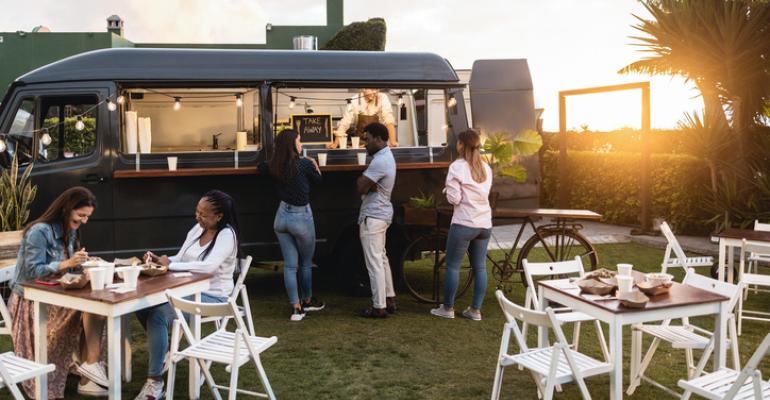Food-price inflation has moderated from the high levels seen in 2022 and 2023, but costs are still expected to rise two to three percent this year, according to the Bureau of Labor Statistics. For conference planners feeling the pinch, using food trucks could be a tactic to keep the budget in line for at least one meal function.
According to the Food Truck Association of Los Angeles’s 2024 Catering Costs Guide, the average per-person price for a food truck tracks considerably lower than other catering options:
• Sit-down meal provided by an on-site caterer: $70-$85
• Buffet meal: $25-$70
• Food trucks: $15-$40
While those prices may be enticing, there are pros and cons to arranging a food-truck meal for attendees.
Pro: For larger events, which need one food truck for every 200-300 attendees, planners can hire a variety of these rolling mini-kitchens to cater to different tastes, making it a fun, choose-your-own-adventure meal for attendees. From shrimp tacos and Hawaiian poke to barbequed ribs and vegan Indian fare, a planner can bring in trucks that cater to dietary restrictions, cultural differences, and even the event theme.
Con: Typically, food trucks just bring the food. Organizers likely have to factor in the cost of seating, clean up, music, drinks, and, for a consistent attendee experience, signage, plates, and utensils.
Pro: The weather. When it’s fine, food trucks are great for getting people munching and mingling outdoors, a refreshing break from indoor meeting spaces.
Con: The weather. Nobody wants to get caught in the rain. Reliably dry conference destinations like Las Vegas, Phoenix, Los Angeles, and even Denver in the warmer months are a natural for a food-truck experience; Seattle, less so.
Con: The set-up location needs to be just right. Food trucks require a flat, open space, both for the vehicles and nearby seating. Planners should also consider permit requirements and related restrictions, such as noise levels. In some cities, food trucks can’t operate within a certain distance of a traditional restaurant.
Pro: Food trucks are casual and experiential, a win for networking or any time you want to lend a festival feel to an event.





